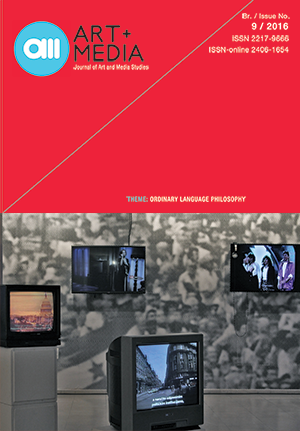Modernism, Tehatricality, and Scepticism: Michael Fried and Cavell’s Conception of the Ordinary Language Philosophy
Modernism, Tehatricality, and Scepticism: Michael Fried and Cavell’s Conception of the Ordinary Language Philosophy
Author(s): Nikola DedićSubject(s): Analytic Philosophy, Philosophy of Language
Published by: Fakultet za medije i komunikacije - Univerzitet Singidunum
Keywords: ordinary language philosophy; history of art; theatre; scepticism; private language; grammatical criteria; Michael Fried; Stanley Cavell; Ludwig Wittgenstein
Summary/Abstract: The paper treats the relationship between the art historian Michael Fried and the philosopher Stanley Cavell, as well as their readings of Wittgenstein’s late philosophy. It argues that Fried’s entire historic-artistic method rests on Wittgensteinian grounds; there is special emphasis on theses concerning the grammatical criteria of language and scepticism. Namely, Fried, like Cavell, interprets modernism as a crisis of a priori criteria by which we come to think a given object as a successful work of art. Fried labels an artwork’s failure to convince, to communicate with the recipient, with the term theatre. This text establishes an analogy between Fried’s concept of theatre, Cavell’s concept of scepticism, and Wittgenstein’s thesis of the impossibility of a private language, situating those theses in the wider context of discussions of modernism.
Journal: AM Časopis za studije umetnosti i medija
- Issue Year: 2016
- Issue No: 09
- Page Range: 65-79
- Page Count: 15
- Language: English

